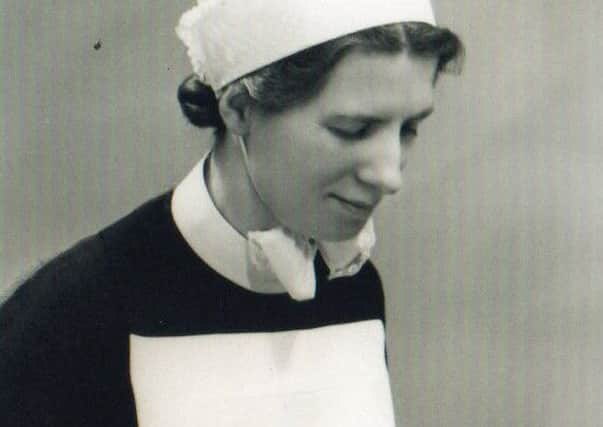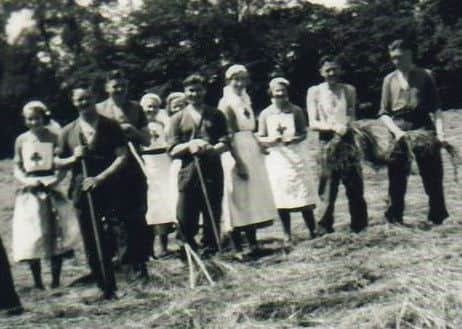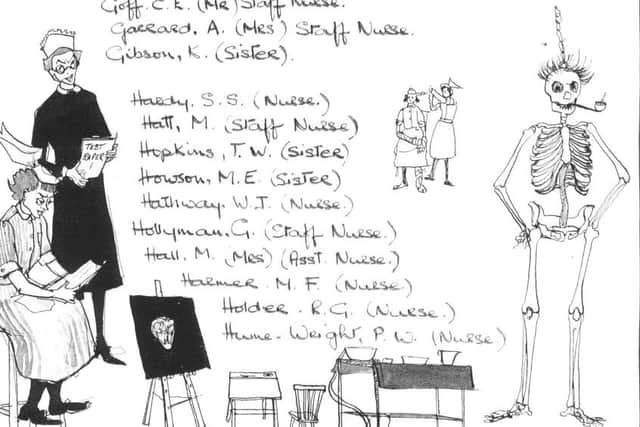Matron Parkinson: A National Health Service pioneer


The Matron at the “Royal West” was Miss E.S. Parkinson, later to become Mrs Buckwell.
She had been appointed in 1939 and her first challenge had been to meet a large demand for additional nurses in the four hutted wards that were part of the Regional Emergency Bed Service by combining trained and trainee nurses with Red Cross Volunteers.
Advertisement
Hide AdAdvertisement
Hide AdThe extra 200 beds had nearly doubled the size of the hospital.


During the Battle of Britain several wounded servicemen had been admitted there including Billy Fiske, the first American volunteer to die ,as a pilot officer, in the Second World War.
The next summer Matron Parkinson took those who were sufficiently recovered outdoors for an unusual convalescence; haymaking in Oaklands Park - see the group photograph, taken in 1941 of the servicemen with nurses.
When the war ended she reorganised the nursing staff so that the hutted wards became entirely medical thus freeing up those in the ninteenth century main building for surgical patients and for an upgraded children’s ward.
Advertisement
Hide AdAdvertisement
Hide AdBy then the Governors had realised that the cost of running a modern acute hospital of the size of the Royal West far outstripped the mainly voluntary donations on which this charitable institution still depended.


In order to economise surgical spirit was served instead of gin at the medical staff’s Christmas party in 1945.
As part of the post- war austerity Matron Parkinson introduced a rule that the student nurses while on night duty had to count out the ward cutlery and could not go to breakfast until every teaspoon was accounted for.
On her ward visits she sometimes would be accompanied by her spaniel - a practice that perhaps was a precursor of the ‘pat- a-dog’ scheme that some convalescent patients enjoy today.
Advertisement
Hide AdAdvertisement
Hide AdSoon after the NHS began Matron Parkinson publicly criticised, at a Governors’ meeting (reported in the Chichester Observer), the out-dated inadequacies of the laundry which did result in it being re-equipped without too much delay. However the budget provided by the NHS was insufficient to meet less basic needs.
Within three years of the start of the NHS local fundraising, which had been so important pre 1948, was reintroduced through the setting up of a League of Friends.
One of the first gifts from that source were more chairs for the additional visitors as a consequence of the relaxation of visiting hours.
This was a need Matron Parkinson had drawn to the attention of the Governors.
Advertisement
Hide AdAdvertisement
Hide AdBy the early 1950s it was decided that the Royal West and St Richards should eventually be combined into one acute hospital.
Matron Parkinson played an active part in promoting a sense of partnership that in the 1960s helped integrate the nursing services on both sites.
To mark the retirement of the recently married Mrs Bucknell in 1956, a former art student and nursing colleague Sheila Collier, created an album with a a dedication “To Matron from all your staff, we say thank you for many happy days”.
It was adorned with delightful cartoons illustrating nurses at work in ‘the Royal West’ and contains the names of the hundreds of nurses who she had led during her 17 years in post.
Advertisement
Hide AdAdvertisement
Hide AdOne of these cartoons depicts this highly respected Matron holding a test paper and standing over a student nurse.
Nurse training must have been vitally important to her who had been one of the first to take the state registration examination. This is an early indication of a service that was even in the 1920s was starting to have a nation wide significance.
How fitting it was that in the summer of 1956 just after her retirement Mrs Buckwell was presented to the Queen and Prince Phillip on their visit that year to Chichester, publicly recognising the part she had played in he cartoon comes from the album in the Chichester Nurses League archives .
My contextual history of the Royal West Sussex Hospital has been published by Chichester Local History Society in the New Chichester Papers.
Martin Cooke’s book, New Chichester Papers No. 3, The Royal West Sussex Hospital 1784-1995, is available from the Chichester Local History Society website at chichesterlocalhistory.org.uk/shopping.